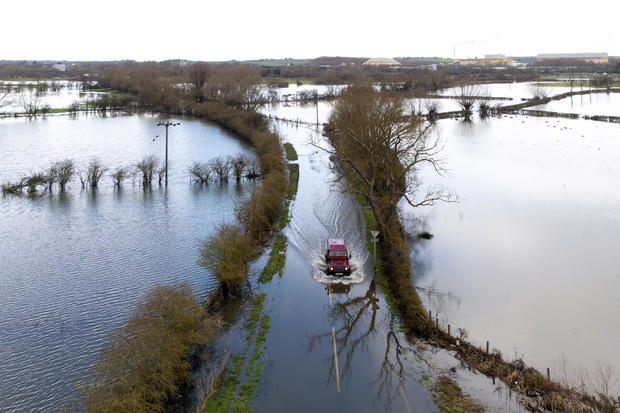A study published on Monday has linked the intensity of extreme water cycle events especially drought and precipitation or flooding to continued rise in global temperatures occasioned by climate change .
The researchers, in what was a novel method, used satellite observations to quantify and rank more than a thousand extreme weather events over the last 20 years that have up to now defied easy measurement.
“Warm air increases evaporation so that more water is lost during droughts, and warm air also holds and transports more moisture, increasing precipitation during wet events. So what we are seeing – greater intensity of extreme wet and dry events as the world warms – makes sense,” co-author Matthew Rodell of NASA told reporters.
Read also: EPA to crack down on toxic PFAS ‘Forever Chemicals’ in drinking water
The study that was published in the journal Nature Water says the frequency of the highest category extreme events has increased to four per year, compared to three per year before 2015.
However, the scientists were nonetheless surprised at how closely the pace of global warming tracked with the intensity of disruptions in the water cycle and said the impact was even stronger than naturally occurring El Nino and La Nina weather phenomena.
The findings leave little doubt that increasing temperatures will cause more frequent, widespread and severe droughts and precipitation events in the future as Earth’s surface has warmed, on average, 1.2 degrees Celsius since the late 19th century, and based on current policies, is on track to heat up 2.8 degrees Celsius above that benchmark by 2100.
“It’s probable that the string of top-ten warmest years (2015-2023) is helping to sustain these ongoing events longer than they would have under more normal global temperature conditions,” said Rodell.
The research offers concrete support for the IPCC’s most recent assessment report, which found that the severity of extreme water cycle events is increasing.
Extreme droughts and floods are ranked as some of the world’s worst disasters with huge impacts for the economy, agriculture and society.
“The conclusion of this study suggests that preparation and adaptation will be that much more important in the future,” said Rodell.
Story was adapted from CNA.
